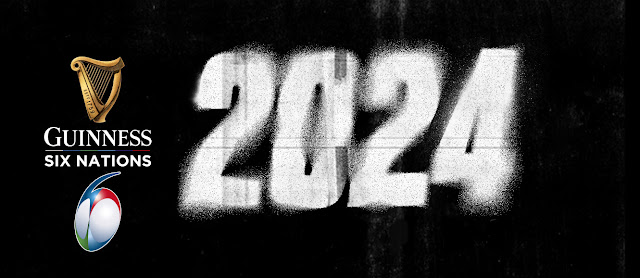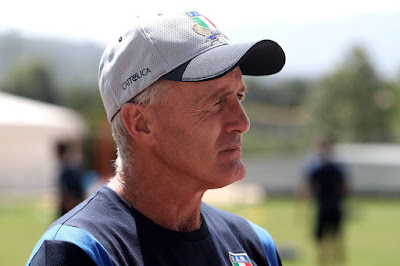The State of It
Even as one of the most optimistic Italian rugby fans I can safely say that Italian rugby is in a bad state. That is not to say that Conor O'Shea's 3 year tenure was a failure, quite the opposite in fact. With the way things were going when he took over it was likely that Italy would now be in a far worse state, but the fact remains that after a disappointing world cup the Italian team enters the 2020 Six Nations without a win since 2016. As expected with every years wooden spoon the calls for a relegation system within the tournament get louder and louder. I don't think any rugby fans (other than the Georgians) really want Italy to leave the Six Nations but unfortunately none of them are willing to let their team be the one that loses to us. The fact remains that if Italy don't start winning games then the calls will only get louder.
When O'Shea took over in 2017 Italy had gone through mediocre spells under Nick Mallett and Jacques Brunel but had crucially still picked up Six Nations wins along the way. It was clear that the squad was ageing and that compared to the speed of progress being made by the other nations Italy were being left behind. I feel for O'Shea, not just because he was such a nice and caring coach, but because in hindsight I can see that he chose to be the man to rebuild Italian rugby from the ground up and with that he had to sacrifice success with the national team. Unfortunately Rugby is a results based game and his tenure is likely to be remembered for a win against one of the poorest South Africa sides of a generation along with a Six Nations record of played 15 won 0.
O'Shea's first Six Nations campaign was a disaster. Beaten soundly by every team and finishing with a points difference of -151. But despite this the real work was being done at a club level with more investment and focus being given to the Pro14 teams Benetton & Zebre. Additionally there was more of an attention to raising the standard of the teams who were still playing in the top tier of Italian domestic rugby in the Top12 (formerly named the Serie A & Eccellenza). Over the previous decade it had become clear that Italy was not producing the quality of player that a Six Nations team required. The national team had become reliant on overseas players qualifying through residency to plug the gaps. This isn't to say that none of these players had an impact. Australian Luke McLean was one of my favourite players of recent times and acquired 89 caps before retiring making him the 10th most capped Italian of all time. Others such as Quintin Geldenhuys and Carlo Del Fava provided much needed class in positions that Italy were lacking. But then there were a high number of players, already in their twilight years, who never looked like making an impact and were merely there to avoid the blushes of drafting in players from the youth squad. Evidence being some of the fly halves used during the decade; Kelly Haimona, Kris Burton, Tobias Botes & Craig Gower. O'Shea could see that using these players was only a short term fix and that it wasn't actually fixing anything. He saw that Italian Rugby needed to be rebuilt and that the best place to start was with the club teams. In the 2016/17 season Zebre had finished bottom of the table and Benetton two places above them. A slightly less disappointing campaign in comparison to the previous two seasons where they had both finished in the bottom two. If any progress was going to be made with the national team then it would have to start in the Pro14. To their credit the Italian Federation bought in to O'Shea's vision and money was pumped in to the ground roots game. The club squads were improved and more money was being spent on the teams in the Top12 and the academy. This has led to improved results for the Italian youth teams including some historic wins against Scotland U20s as well as close results against both England and France U20s. It was agreed that both Pro14 teams could recruit permit players from the Top12 allowing increased squad depth (especially during international windows when half of the clubs players would be on Italy duty) as well as exposing up and coming players to a higher level of competition. This finally provided Italian rugby with a clear structure for home grown players to develop through the ranks. Unfortunately the problem was that the other top tier teams had been doing this for decades and Italy had a lot of catching up to do.
Fast forward 3 years and there is no denying that in terms of domestic rugby this has had a massive impact. Benetton are now a real force in the Pro14, qualifying for the playoffs last year and playing a really attractive style of rugby under Kieran Crowley's stewardship. This years campaign has been affected by a large portion of the squad being at the world cup but despite this they remain competitive with only 2 of their 6 losses being by more than 5 points. Over in Parma, Zebre have not made quite as bigger strides as their rivals but the important thing is that they are now a much more settled club. Unlike their predecessors Aironi they have the backing of the Italian Federation and are therefore able to pay all of their players on time and have a steady influx of players coming through from the Italian Academy. Although they are still thrashing it out amongst the bottom clubs and scraping wins where they can find them the real cause for optimism is that they are providing high level playing experience for young players while allowing the more long serving players like Carlo Canna, Tommaso Castello, Giulio Bisegni & Andrea Lovotti to learn the characteristics of being a leader in the dressing room. This leads on to one of the massive questions hanging over Italian Rugby and that is who will fill the giant hole left by Sergio 'God' Parisse.
Parisse has confirmed that he will be retiring from international duty after this Six Nations and will only be available for the home games against Scotland and England in Rome. The national team has known this day would come for a while now but there are so many elements of Parisse's game that will be impossible to replace. His work at the line out is immense as is his passing but where he will be really missed is his awareness, game management and leadership. We saw at the world cup that a back row of Negri, Polledri & Steyn worked really well together but none of them are going to be able to replace Parisse's leadership qualities. With vice-captain Ghiraldini and unsung hero Alessandro Zanni also retiring a whole new set of senior players will need to step up. All together those three players have racked up 363 international caps. I doubt that new temporary head coach Franco Smith will make a decision as to a permanent replacement at captain and may use one of the older players, such as Dean Budd, Tommaso Benvenuti or Tito Tebaldi, to captain the team temporarily (although none of them are guaranteed a place in the first team let alone the squad). As a long term replacement there isn't an awful lot of experience to choose from. Italy have been lucky that over their time in the Six Nations they have had a steady procession of legendary captains. From battling scrum half Alessandro Troncon in the early days to the feisty Gloucester legend Marco Bortalami on to rugby god and all around perfect human Sergio Parisse. But as a new era begins there is no rightful heir to the throne. Michele Campagnaro is an obvious choice having already captained Italy briefly during their North American tour of 2018 but after injuring his knee for Harlequins he will be sidelined for the Six Nations and much of 2020. Tommaso Castello has been captain of Zebre for a few seasons now but has been out injured since last year's Six Nations and will have his work cut out to make it back in to the Zebre team first, once fully fit. Another option which might be more likely is that Tommaso Allan will be picked to take over. He has been captaining Benetton in recent times which suggests to me that he is being lined up for the role with the national setup. Although Allan's form has dipped lately, leaving him playing second fiddle to Ian Keatley at Benetton, it is likely that he will remain first choice fly half with the national team (although I will dissect this in more detail in later posts). With both Allan and Campagnaro being 26 they are at the prime age to take over the captaincy for at least the next world cup cycle. It may be that there is another character within the team that deserves the role but from the outside it doesn't look like an obvious decision.
After that little history lesson we switch back to the national team and the inescapable fact that during all of this progression and restructuring not a single Six Nations game has been won. It was hoped that after convincingly beating Georgia in Florence (2018) the argument for a change in structure to the tournament would be quashed. I suspect though that another wooden spoon for Italy in 2020 may result in calls from the Georgian Federation (and the wider rugby community) for a more daunting return leg in Tbilisi. For a long period Georgia could point to the IRB world rankings, where they were above Italy, as a reason to make the match between the two nations happen. The World Cup has done it's job in readdressing the balance with Italy now sitting two places above Georgia in 12th. But the way the rankings work is particularly harsh on Italy as countless losses in the Six Nations see them drop lower and lower whereas Georgia's wins in the European International Championship see them climb higher and higher. For this reason it wont be long till the Georgians are once again looking down the rankings at Italy. This may seem unimportant, besides bragging rights, but the international rankings do decide seeding for the World Cup pools. If Italy want to achieve their ambition of reaching the knockout stages of the next world cup then they have to take the rankings seriously to avoid a similar pool to the one in Japan. Although there are financial benefits to playing Autumn and Summer tests against New Zealand, Australia & South Africa, as well as the positives of exposing players to the top level of rugby, the Italians need to stop punching above their weight. For that reason I am glad to see that in July 2020 Italy will be touring the Americas with very winnable games against the USA and Canada before heading to Argentina for what will be a litmus test of what direction the national team is heading in.
As will become apparent over the forthcoming blog posts, I am forever an optimist and I will often call back to various times over the past decade to highlight how much Italian rugby has improved. The problem being that the other five nations seem to have improved twice as fast. But with every new year, new Six Nations and new head coach comes an opportunity to ignore the history books and renew our hope that now is the time that Italy rugby fulfils its potential. Forza Italia.



Comments
Post a Comment